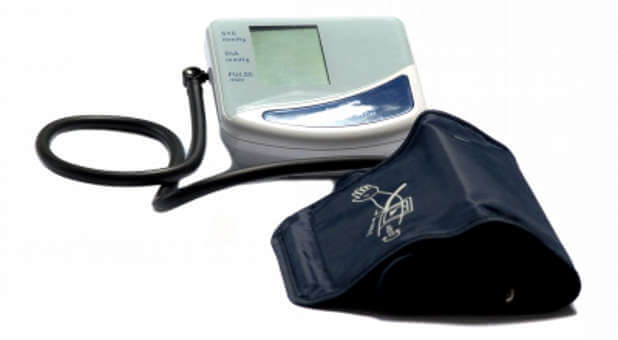Less may be more when it comes to blood pressure checks, according to a new study.
After analyzing five years’ worth of data for more than 400 patients, researchers conclude that the current practice of screening at every visit to the doctor’s office—up to several times a year—may result in more people mistakenly diagnosed and unnecessarily treated for high blood pressure than would simple yearly screening.
Blood pressure measurements are often taken without following proper procedure, according to lead study author Dr. Gregory Garrison, so the readings can be widely inaccurate and lead to some people being wrongly diagnosed with hypertension, while others who have the condition are written off as just “more false positives.”
“One, it results in unnecessary patient anxiety, repeated clinic visits, and laboratory testing,” Garrison, of the Mayo Clinic in Rochester, Minnesota, told Reuters Health by email. “Two, it often lulls physicians into writing off a positive result because so few are confirmed.”
Garrison and his colleagues found that taking fewer readings, while still sometimes inaccurate, would weed out almost half of the false positives.
The researchers looked at Mayo Clinic records for 68 patients diagnosed with high blood pressure and 372 patients without high blood pressure. Based on the readings from every doctor’s visit, all 68 high blood pressure cases were identified, but 110 people without high blood pressure would also potentially have been wrongly diagnosed because of a stray high measurement.
When the researchers analyzed the same data but only considered one measurement per patient per year, they identified 63 of the patients with high blood pressure—at or before the original date of their actual diagnosis—and got 67 false positives, according to the results published in the Annals of Family Medicine.
An office blood pressure measurement can be inaccurate if it is not performed with the patient seated, arm supported, after a five-minute period of rest. Otherwise, blood pressure can rise temporarily for a variety of reasons, including the mild stress of being tested by a doctor, known as the “white coat effect.”
“Blood pressure technique is not good at all, and does overestimate a lot of the time,” said Dr. William Cushman, chief of the Preventive Medicine section at the Veterans Affairs Medical Center in Memphis, Tennessee.
But he disagrees with the Mayo team’s conclusion. Overestimation results in unnecessary expense and anxiety, but doesn’t usually harm the patient, said Cushman, who was not involved in the new study.
If less frequent testing fails to identify a few positive cases, that could be a bigger problem, he told Reuters Health.
In the study, annual testing failed to identify five of the 68 cases of hypertension, or a little over seven percent, which was not statistically significant in that case. But it could become significant when applied to a larger population, according to Cushman.
“In populations, we don’t want to miss ten percent of people,” Cushman said.
High risk patients with high blood pressure can start to see the benefits of treatment after six months or a year, so waiting twelve months between tests could have consequences for some, he added.
For most people, hypertension is a slow moving disease, and a diagnosis delayed by a few months or a year is unlikely to have noticeable negative consequences, according to Garrison.
“However, we have a number of patients, perhaps as many as 30 percent, who have hypertension for years without diagnosis and proper treatment,” Garrison said. “This can result in heart disease, kidney disease, and many other complications.”
These people can have elevated readings for years that go unnoticed or undiagnosed because they are written off as false positives and attributed to pain, infection or some other cause, he explains.
Measuring blood pressure less often and taking each reading more seriously could help catch some of those undiagnosed cases, Garrison believes.
The United States Preventive Services Task Force, a government-backed advisory body, recommends blood pressure screening once every two years for people at low risk for the condition and once yearly for those at high risk.
Doctors continue to test at every visit partly because patients expect it, Cushman said, and partly because there are generally no organized efforts to ensure patients and doctors remember to screen every year or two.
Before doctors can start screening less, that kind of system of reminders needs to be in place to ensure no patient falls through the cracks, Cushman said.
Getting blood pressure taken is very important,” he added. “If an adult has not had their blood pressure taken in a year, or they don’t know what it was, then they should get it taken fairly soon, or ask for it,” he said.














































